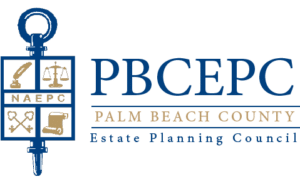
At its essence, estate planning has always been about planning for the efficient transfer of your assets to your intended beneficiaries. As professional advisors, we recognize that our lives and our assets are increasingly transitioning from tangible property to digital assets. In the 21st century, a comprehensive estate plan must address these digital assets. While new technology has made our lives more efficient, have you considered how your passwords, pin numbers, and two-factor authentication might frustrate those charged with carrying out your wishes when you are gone?
You replaced your rolodex and datebook with your cell phone, but how many people know the access code for your cell phone? You may have “gone paperless,” automated your monthly bill payments, and replaced your check book with Venmo, Zelle, and PayPal. You no longer have a DVD and CD collection because you purchased all your favorites on iTunes and Amazon Prime. Your family photo album now exists largely on social media accounts. Have you discussed with your fiduciaries how they will be able to access these digital records and digital assets when you are gone?
The Florida Fiduciary Access to Digital Assets Act passed in 2016 was an effort by the legislature to provide a legal path for your Personal Representative or Agent under your Durable Power of Attorney to access your digital assets and communications. However, it is still important that your will, trust, and power of attorney documents contain language addressing these kinds of assets and providing specific authority to the fiduciary.
The first step in planning for digital assets is to develop a comprehensive inventory of those assets. Without an inventory of these assets and their all-important passwords, your Personal Representative may be required to hire a computer forensics expert to locate and access your important files. In today’s digital world, it is no longer sufficient for your Personal Representative to go through the paper files in your desk drawer or go through your mail to figure out what bills need to be paid, what services to discontinue, or what insurance claims need to be filed. Now they need to access your email accounts, contact lists, online banking, and your cloud based digital storage. These tasks will be greatly simplified by an up-to-date inventory and password list.
Certain assets, such as cryptocurrency, NFTs, and other blockchain-related assets, require advance planning or they may be lost forever upon your death or incapacity. Laws and policy addressing these kinds of assets are in their infancy. While there are established legal paths for transferring bank accounts, automobiles, and real property to your beneficiaries, these ever-emerging cryptoassets are designed to exist outside of that system. It is critical during your lifetime to implement a plan that will legally and efficiently transfer ownership of these valuable assets to your loved ones.
Once you have identified and catalogued your digital assets, you will need to implement a system to keep it up to date and decide how you will share it with your fiduciary. Who to trust with your inventory is a critical decision. The privacy and security concerns are obvious, but this must be balanced against the practical need for quick access in the event of death or incapacity. Some online platforms have made the process easier, allowing you to name a recovery email address or legacy account contact. There are also numerous services that will help you to save and manage your passwords. Whatever method you choose, whether it is a handwritten list on a legal pad or an encrypted file saved on an external storage device, it won’t benefit anyone if your fiduciary doesn’t know where to look for it when you are gone. This is where communication is key. You should have a discussion with your fiduciary and your advisors about the planning you have done, or if you prefer, leave them detailed written instructions to be reviewed in the event of your death or incapacity.
The process of developing and implementing a comprehensive estate plan has evolved in modern times. Today, more than ever, the efficient transfer of assets to beneficiaries requires an asset-by-asset analysis of how the asset can be located, accessed, and conveyed to the intended beneficiary. Efficiency can no longer be measured by the minimization of transfer taxes alone. Practical considerations such as accessibility, particularly with respect to intangible digital assets, must be part of the planning process. Even if you don’t make a living as a YouTube content creator and you aren’t a crypto savant, you may still have valuable digital assets. Value in this case may be monetary or merely sentimental, but regardless, identifying and planning for these assets during life will make life much easier on your loved ones and your fiduciaries when you are gone.
A principal of Doane & Doane, P.A., Rebecca G. Doane is Florida Bar board certified in wills, trusts and estates. She holds the highest ratings (“AV”) from the premier attorney-rating service, Martindale Hubbell. She is also a certified public accountant and founder of the Guardianship Education Committee of the Palm Beach County Bar Association.
A principal of Doane & Doane, P.A., Randell C. Doane has practiced law in the area of estate planning, probate and taxation since 1975. He holds a post-doctorate degree in tax law and holds the highest ratings (“AV”) from the premier attorney-rating service, Martindale Hubbell. He is board certified in wills, trusts and estates by the Florida Bar Board of Legal Specialization.
Murphy Cray, J.D., LL.M is an associate attorney at Doane & Doane, P.A. His areas of legal practice include estate planning, Trust and estate administration, and guardianship law. He is an active member of the Palm Beach County Bar Association, and the Real Property, Probate & Trust Law section of the Florida Bar.
